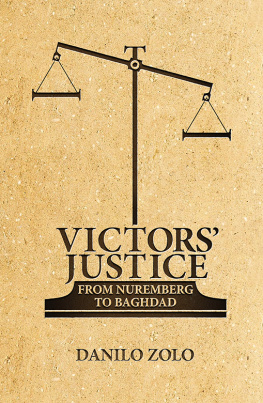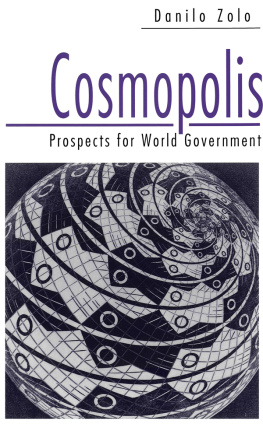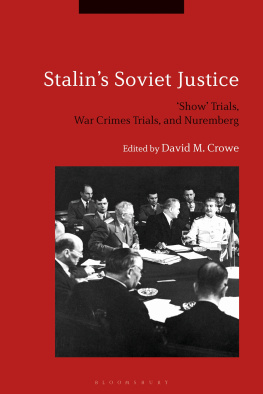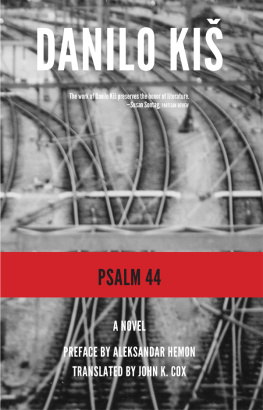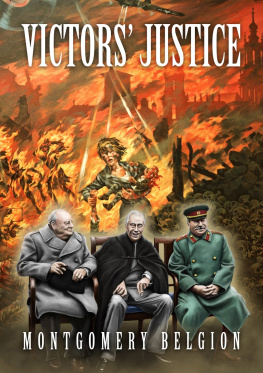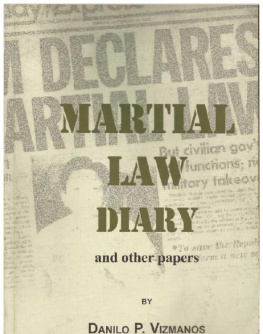Danilo Zolo - Victors Justice: From Nuremberg to Baghdad
Here you can read online Danilo Zolo - Victors Justice: From Nuremberg to Baghdad full text of the book (entire story) in english for free. Download pdf and epub, get meaning, cover and reviews about this ebook. year: 2006, publisher: Verso Books, genre: Politics. Description of the work, (preface) as well as reviews are available. Best literature library LitArk.com created for fans of good reading and offers a wide selection of genres:
Romance novel
Science fiction
Adventure
Detective
Science
History
Home and family
Prose
Art
Politics
Computer
Non-fiction
Religion
Business
Children
Humor
Choose a favorite category and find really read worthwhile books. Enjoy immersion in the world of imagination, feel the emotions of the characters or learn something new for yourself, make an fascinating discovery.
- Book:Victors Justice: From Nuremberg to Baghdad
- Author:
- Publisher:Verso Books
- Genre:
- Year:2006
- Rating:5 / 5
- Favourites:Add to favourites
- Your mark:
- 100
- 1
- 2
- 3
- 4
- 5
Victors Justice: From Nuremberg to Baghdad: summary, description and annotation
We offer to read an annotation, description, summary or preface (depends on what the author of the book "Victors Justice: From Nuremberg to Baghdad" wrote himself). If you haven't found the necessary information about the book — write in the comments, we will try to find it.
Victors Justice: From Nuremberg to Baghdad — read online for free the complete book (whole text) full work
Below is the text of the book, divided by pages. System saving the place of the last page read, allows you to conveniently read the book "Victors Justice: From Nuremberg to Baghdad" online for free, without having to search again every time where you left off. Put a bookmark, and you can go to the page where you finished reading at any time.
Font size:
Interval:
Bookmark:


From Nuremberg to Baghdad

DANILO ZOLO
TRANSLATED BY M. W. WEIR

This paperback edition published by Verso 2020
English-language edition first published by Verso 2009
First published as La giustizia dei vincitori. Da Norimberga a Baghdad
Edizioni Laterza 2006, 2013
Translation M. W. Weir 2009, 2020
Danilo Zolo 2009, 2020
All rights reserved
The moral rights of the author and translator have been asserted
1 3 5 7 9 10 8 6 4 2
Verso
UK: 6 Meard Street, London W1F 0EG
US: 20 Jay Street, Suite 1010, Brooklyn, NY 11201
versobooks.com
Verso is the imprint of New Left Books
ISBN-13: 978-1-78873-663-3
ISBN-13: 978-1-78873-664-0 (UK EBK)
ISBN-13: 978-1-78873-665-7 (US EBK)
British Library Cataloguing in Publication Data
A catalogue record for this book is available from the British Library
Library of Congress Cataloging-in-Publication Data
A catalog record for this book is available from the Library of Congress
Typeset by Hewer Text UK, Ltd, Edinburgh
Printed and bound by CPI Group (UK) Ltd, Croydon CR0 4YY
CONTENTS
There have been numerous scholars who, while not necessarily sharing my assessments, have been generous with their criticism and suggestions for improving this book. In particular I wish to thank the friends with whom I have enjoyed an intense exchange of ideas for years: Luca Baccelli, Richard Bellamy, Nicol Bellanca, Franco Cassano, Alessandro Colombo, Pietro Costa, Luigi Ferrajoli, Gustavo Gozzi, Giovanni Mari, Tecla Mazzarese, Pier Paolo Portinaro, Geminello Preterossi, Giuseppe Tosi and Emilio Santoro. Various younger researchers with specific domains of competence have made valuable contributions, and I wish to place on record at least those of Filippo del Lucchese, Giulio Itzcovich, Juan Manuel Otero, Stefano Pietropaoli, Lucia Re and Filippo Ruschi. I also want to thank the members of the editorial board of the online Jura Gentium journal for their generous, day-to-day collaboration, and first and foremost the webmaster, Francesco Vertova.
A particular vote of thanks goes to Antonio Cassese, without whose affectionate theoretical and political diffidence this text of mine would be much more vulnerable. And finally I am grateful to Geminello Preterossi, who once again had no hesitation in recommending one of my productions to my Italian publisher Laterza.
It is with heartfelt regret that I dedicate this book to the memory of Andrea Orsi Battaglini.
Until the end of the Second World War, international law contemplated political, economic or territorial sanctions for countries which violated its norms, but there was no provision for punishing individuals. In fact, important multilateral treaties specifically excluded individuals from being subjects in international law, and thus liable to penal sanctions. However, from the early decades of the twentieth century onwards, the idea began to take hold in the West, under the influence of North American culture, that a war of aggression should be considered an international crime, and that penal justice should be introduced into the international legal system in order to punish those responsible for wars of aggression on a par with any other war crime.
The first sign of this radical change in the legal approach to war was the incrimination, at the end of the First World War, of Kaiser Wilhelm II of Hohenzollern. The victorious nations accused him of committing a supreme offence against international morality and the sanctity of treaties and asked for him to be handed over for trial as a war criminal by a court made up of judges they were to nominate. The trial did not take place, but what had been attempted unsuccessfully with respect to the old German emperor was put into practice some twenty years later by the powers which emerged victorious from the Second World War. At Nuremberg and Tokyo, international criminal tribunals were organized to try the defeated enemy. Twenty-two Nazi leaders and twenty-eight high-ranking members of the Japanese administration and army were arraigned. At the conclusion of the two trials, exemplary punishments were handed down, including seventeen death sentences which were carried out immediately. Altogether, some 500 German citizens were executed at the end of subsequent trials organized by the Americans, the British and the French in Nuremberg and other cities in Germany, while we know very little about the many trials held by the Soviets in their occupied territories.
In the meantime, the victors in the Second World Waressentially the United States, Great Britain and the Soviet Unionmet at Dumbarton Oaks, near Washington, and drew up the Charter of the United Nations. In practice, the Charter was then imposed on the fifty countries that were invited to San Francisco in 1945. Under its terms, aggressive war is considered a crime and the Security Council is charged with using force to prevent or punish it. But, thanks to the power of veto they accorded themselves, the victorious nations are able to make free use of military force: in the post-war years both the United States and the Soviet Union did so systematically without facing any consequences. Each of the superpowers embarked on lengthy wars of aggressionthe United States in Vietnam, the Soviet Union in Afghanistanor in single interventions, the former in Guatemala, Lebanon, Cuba, Santo Domingo, Grenada, Libya and Panama between 1954 and 1986, and the latter in Eastern Europe in 1956 and 1968.
After the long parenthesis of the Cold War, the experience of victors justice has been renewed: in the early 1990s it targeted the political and military leadership of the Yugoslav Federal Republic, and notably its president Slobodan Miloevi. Demonized as being responsible for the wars in the Balkans and as the instigator of grave violations of human rights, including ethnic cleansing in Bosnia-Herzegovina and Kosovo, Miloevi was allegedly handed over by the Yugoslav government to the International Criminal Tribunal for the former Yugoslavia. In reality, the government yielded to economic blackmail by the United States and pressure from NATO, and in a surprise action the former president was captured and transferred to the Hague, the seat of the Tribunal. A few years later, in Iraq, victors justice was applied to the political and military exponents of the Baath party, principally the president of the Republic, Saddam Hussein, who was also accused of grave violations of human rights. The head of state was captured and imprisoned in a secret location by US troops, and tried in Baghdad by a Special Tribunal, pressed for and set up by the United States while Iraq was under its military occupation. Both Miloevi and Hussein were imprisoned and brought to trial at the instigation of the United States and Great Britain following the victorious conclusion of two wars of aggression: one humanitarian, in the name of the international safeguarding of human rights, launched in 1999 by NATO against the Yugoslav Federal Republic, and one preventive, against Iraq, begun in 2003 and still tragically in progress. If he had not died unexpectedly in March 2006, Slobodan Miloevi would have been sentenced to life imprisonment, since the statute of that Tribunal does not contemplate the death sentence, while the dictator Saddam Hussein was hanged. This was a case of retributive, exemplary, sacrificial justice in the best tradition of the Nuremberg model.
Font size:
Interval:
Bookmark:
Similar books «Victors Justice: From Nuremberg to Baghdad»
Look at similar books to Victors Justice: From Nuremberg to Baghdad. We have selected literature similar in name and meaning in the hope of providing readers with more options to find new, interesting, not yet read works.
Discussion, reviews of the book Victors Justice: From Nuremberg to Baghdad and just readers' own opinions. Leave your comments, write what you think about the work, its meaning or the main characters. Specify what exactly you liked and what you didn't like, and why you think so.

